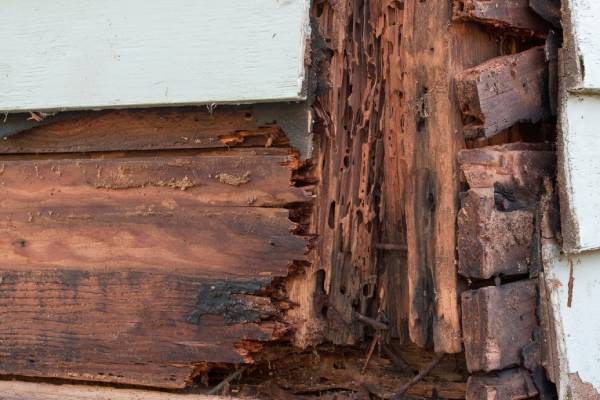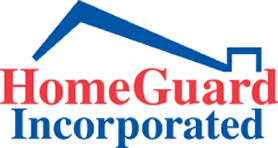5 Common Household Pests to Watch Out For

Are you worried about pest infestations in your home? You’re not alone. Pests are annoying and can pose serious health and property risks. As a homeowner, it’s crucial to stay vigilant against these unwanted guests and take preventative measures to keep them at bay. In this article, we’ll discuss five common household pests you should watch out for and give tips on preventing and controlling them.
-
Cockroaches
Cockroaches are resilient creatures found in nearly 14 million homes. They thrive in warm, moist environments like kitchens and bathrooms and can spread harmful bacteria and pathogens, including E. coli and Salmonella, contaminating surfaces and leading to food poisoning. Their droppings, saliva, and shed parts can trigger allergies and asthma, especially in children.
Maintaining cleanliness is your primary way to prevent roach infestations. Ensure you regularly sweep and vacuum, promptly clean spills and crumbs, and keep food in sealed containers. If you have leaky faucets, fix them promptly and ensure good ventilation in damp areas. Finally, sealing entry points around doors and windows keeps roaches at bay. -
Ants
Common ants like odorous house ants, carpenter ants, and pharaoh ants frequently invade homes, each causing different issues. Odorous ants give off a unique smell when crushed. Carpenter ants burrow into wood, which can harm the structure of buildings, while pharaoh ants are known to spread bacteria, contaminating food and surfaces.
To prevent ant infestations, eliminate food sources and clean up crumbs and spills. Also, food should be stored in sealed containers, and garbage should be disposed of regularly. If possible, seal entry points by caulking gaps around your home, blocking off their entry points. Combining regular home inspections with these steps will lower the risk of ant infestations. -
Rodents (Mice and Rats)
Mice and rats are not only annoying but also pose a severe health risk. Their droppings spread diseases like hantavirus and salmonellosis. Direct contact or even just inhaling dust from their droppings can lead to health problems, so they can even affect air quality. They also risk your property by chewing on wires and insulation, raising the risk of electrical fires.
What can you do to deal with them? The most effective anti-rodent methods are traps, sealing entry points with materials like steel wool and caulk, and maintaining a clean, clutter-free environment. Also, ensure you regularly dispose of trash, store food securely, and eliminate debris and standing water. Professional extermination can be a last resort if those don’t work. -
Bed Bugs
Bed bugs are tiny, reddish-brown, flat insects that love to eat blood. They hide in any available cracks in your home and feed on humans at night. The most prominent signs of infestation include itchy bites, blood stains on your bedding, and small black spots left from their feces.
So, what’s the best way to deal with these sneaky critters? Aim to use a mix of professional and DIY methods to eradicate them. Professionals will apply chemical and heat treatments to kill them at all life stages, allowing for comprehensive elimination. For DIY supplementation, vacuum floors thoroughly, wash and dry fabrics at high temperatures, and freeze your belongings if possible. You can top things off by sealing any cracks to block their hiding and breeding spots. -
Termites
Termites are a common household pest that can secretly damage wood, floors, and wallpaper. To spot termite damage, look for hollow wood with a honeycomb texture, mud tubes on exterior walls, or small, wood-colored pellet droppings. Additionally, sagging floors and doors or damaged drywall may also indicate termites. Luckily, there are ways to deal with this.
Again, termite inspections are vital, so patrol your home at least once a month to keep an eye out. Consider enlisting pest control professionals to help. Aside from that, keeping your home dry is crucial, as termites are attracted to moisture. So ensure gutters, downspouts, and splash blocks direct water away from your home’s foundation and maintain dry conditions in crawl spaces, basements, and attics.
Finally, you can use termite barriers, such as metal shielding or crushed rock, and soil treatments with termiticides for extra protection.
Conclusion
Dealing with pests like rodents, bed bugs, and termites means being vigilant and proactive. However, you can prevent infestations and property damage by taking early measures and acting quickly. Just remember to eliminate food sources and clutter, regularly clean, seal entry points, and inspect your home for signs of infestation.
Finally, don’t hesitate to contact HomeGuard. Our certified and licensed experts are committed to offering you the knowledge required to maintain the safety and health of your home for years to come. To book an inspection for your home, termite, roof, pool, or sewer lateral, reach us at 855-331-1900. Our helpful Customer Care team is available to help you and schedule a convenient appointment.




